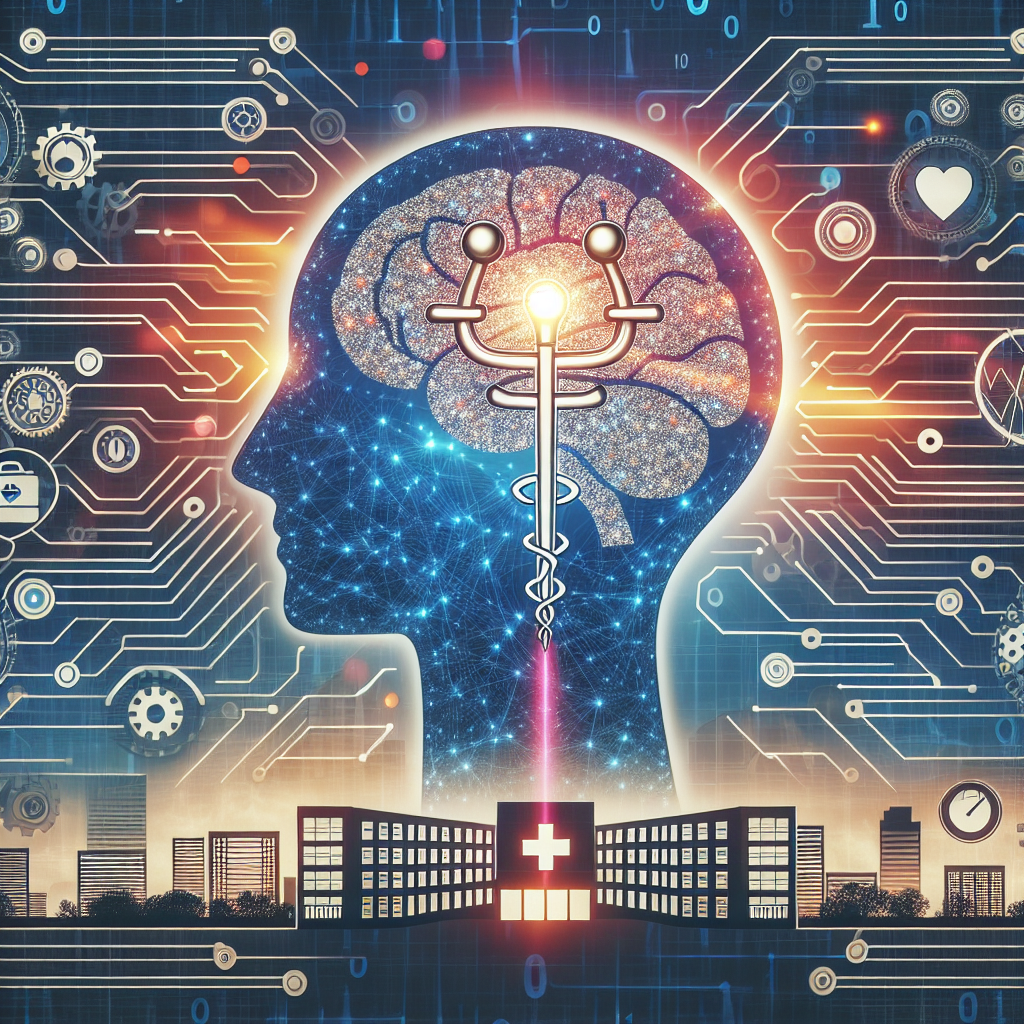AI Integration: A Game-Changer for Healthcare Providers
In recent years, the healthcare industry has seen a significant shift towards the integration of artificial intelligence (AI) technology. AI has the potential to revolutionize the way healthcare providers deliver care, improve patient outcomes, and optimize operational efficiency. From predictive analytics to personalized medicine, AI is transforming the way we approach healthcare.
AI Integration in Healthcare
AI integration in healthcare involves the use of machine learning algorithms and other AI technologies to analyze and interpret vast amounts of data. This data can come from electronic health records, medical imaging, genetic information, and other sources. By leveraging AI, healthcare providers can uncover insights and patterns in data that may not be apparent through traditional methods.
One of the key advantages of AI integration in healthcare is its ability to improve diagnostic accuracy. AI algorithms can analyze medical imaging scans, such as X-rays and MRIs, with a level of precision that is unmatched by human radiologists. This can lead to earlier detection of diseases, more accurate diagnoses, and ultimately better patient outcomes.
AI can also help healthcare providers make more informed treatment decisions. By analyzing patient data and medical literature, AI algorithms can suggest personalized treatment plans that are tailored to the individual patient’s needs. This can lead to more effective treatments, reduced side effects, and improved quality of life for patients.
Another area where AI integration is making a significant impact is in predictive analytics. By analyzing historical data, AI algorithms can identify patterns and trends that can help healthcare providers predict and prevent adverse events, such as hospital readmissions or complications during surgery. This can lead to more proactive and cost-effective care.
AI Integration Challenges and Opportunities
While the potential benefits of AI integration in healthcare are clear, there are also challenges that providers must address. One of the main challenges is ensuring the accuracy and reliability of AI algorithms. Healthcare providers must carefully validate AI algorithms to ensure that they are making accurate predictions and recommendations. This requires a robust validation process that involves testing the algorithm on diverse datasets and comparing its performance to human experts.
Another challenge is ensuring the privacy and security of patient data. AI algorithms rely on vast amounts of data to make predictions and recommendations, which raises concerns about data privacy and security. Healthcare providers must implement strict data protection measures to safeguard patient information and comply with regulations such as the Health Insurance Portability and Accountability Act (HIPAA).
Despite these challenges, the opportunities that AI integration presents for healthcare providers are immense. By harnessing the power of AI, providers can improve patient outcomes, reduce costs, and enhance the overall quality of care. AI technology has the potential to revolutionize every aspect of healthcare, from diagnosis and treatment to hospital operations and administration.
Frequently Asked Questions
Q: How is AI being used in healthcare today?
A: AI is being used in healthcare in a variety of ways, including medical imaging analysis, predictive analytics, personalized medicine, and administrative tasks such as scheduling and billing.
Q: What are some examples of AI applications in healthcare?
A: Some examples of AI applications in healthcare include diagnosing diseases from medical images, predicting patient outcomes, identifying treatment options based on genetic data, and optimizing hospital workflows.
Q: How can healthcare providers ensure the accuracy of AI algorithms?
A: Healthcare providers can ensure the accuracy of AI algorithms by validating them on diverse datasets, comparing their performance to human experts, and continuously monitoring and updating the algorithms as new data becomes available.
Q: What are the benefits of AI integration in healthcare?
A: The benefits of AI integration in healthcare include improved diagnostic accuracy, personalized treatment plans, predictive analytics to prevent adverse events, and overall cost savings and efficiency improvements.
Q: What are some of the challenges of AI integration in healthcare?
A: Some of the challenges of AI integration in healthcare include ensuring the accuracy of AI algorithms, protecting patient data privacy and security, and complying with regulations such as HIPAA.
In conclusion, AI integration is a game-changer for healthcare providers. By leveraging AI technology, providers can improve patient outcomes, optimize operational efficiency, and revolutionize the way healthcare is delivered. While there are challenges that must be addressed, the opportunities that AI presents for healthcare are immense. As AI technology continues to evolve, healthcare providers must embrace this transformation and harness the power of AI to drive innovation and improve patient care.

